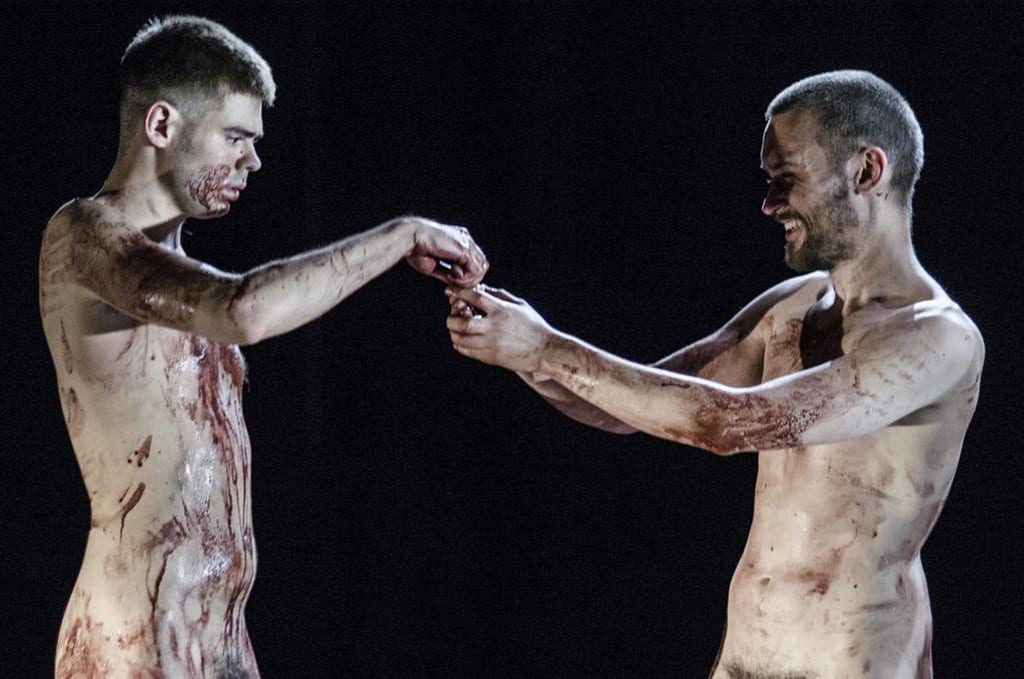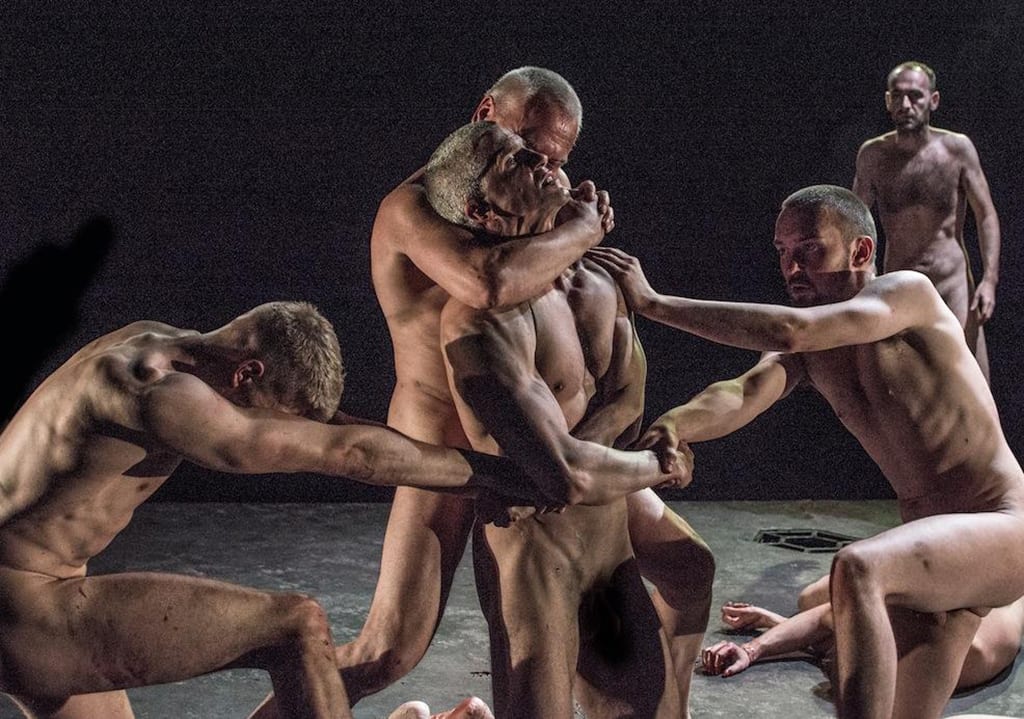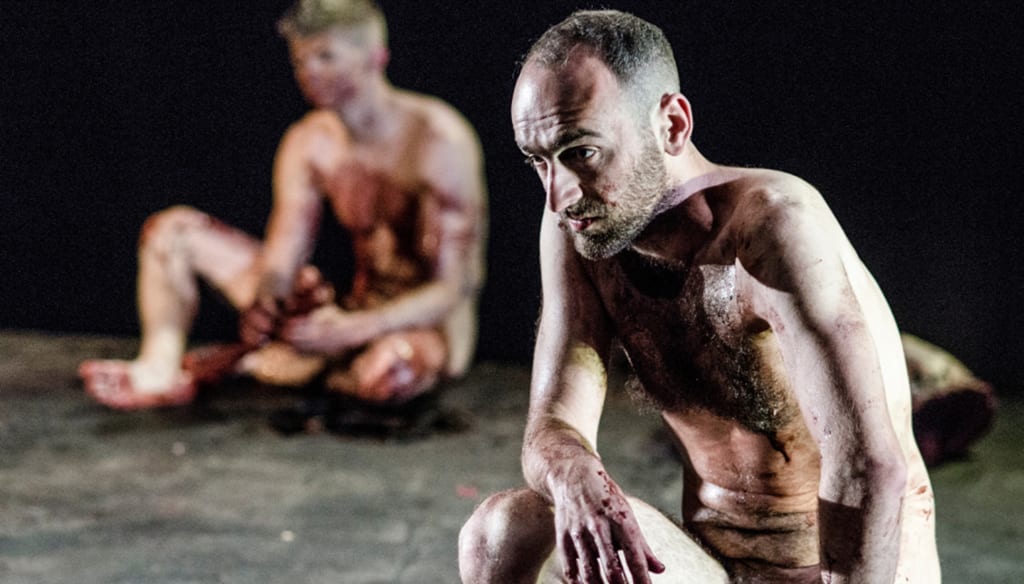A crudely summarised synopsis of David Lee’s play would be, ‘Seven blokes in a basement with no clothes on for ninety minutes’. Which at first glance has quite a lot of scope to be either boring or ridiculous.
But hats off to the team behind The Curing Room, because it is simultaneously mesmerising, nauseating and touching. Although you probably won’t be able to settle on a conclusive opinion until at least a day after watching.
The seven men are Soviet soldiers, imprisoned by Nazis in the eponymous meat curing room below a monastery in Southern Poland during 1944. The production follows this group of military men, used to adhering to orders provided by a formal chain of command. The play depicts what happens when this structure is suddenly pulled out from beneath their feet. Stripped not only of clothes, but rank, dignity and worldly trappings.
It explores an explicitly male reaction to complete isolation from what we deem ‘reality’ and the set of rules humanity has constructed to govern it. From the off this production mocks the formalities and masculinity of military life – the absurdity of soldiers standing to attention with no clothes on, struggling to hold onto some semblance of order.
Director Joao de Sousa’s choice of minimal set and non-intrusive information projection keeps the audience focused on the acting. Meaning total reliance on actors to command the stage – which they do very well. Each actor more-than proves himself in portraying strong, individual characters who play off one another. There is a clear bond between the cast members (no pun intended).
Characters such as the compassionate Sasha Ehrenberg (Harvey Robinson), strive to retain order and hold back the chaos. Whereas the sinister Leonid “Animal Killer” Drossov (Will Bowden) feeds off this and becomes the main destabilising influence within the room.
The group is initially held together by their unanimous, unquestioning respect for authority, chosen for them by the almighty power of The State in the form of naïve former economist Captain Victor Nikolov (Rupert Elmes).
The play’s infamous nudity doesn’t feel gratuitous. It’s not a brief scene with the intention to shock, but one aspect of the men’s sustained vulnerability and deprivation from anything and everything.
A constant theme through the play is that of the internal struggle between man’s animal instinct and mental logic.
Some characters feel that survival is all that matters. For others, this is outweighed the emotional cost of living with the consequences of their actions. Ceasing to be a man and becoming a monster. But ultimately all adhere to their base instincts of self-preservation, horrified by what they are capable of.
The Curing Room is about many things which are impossible to do justice in a short written review.
You should probably go and see it for yourselves.



